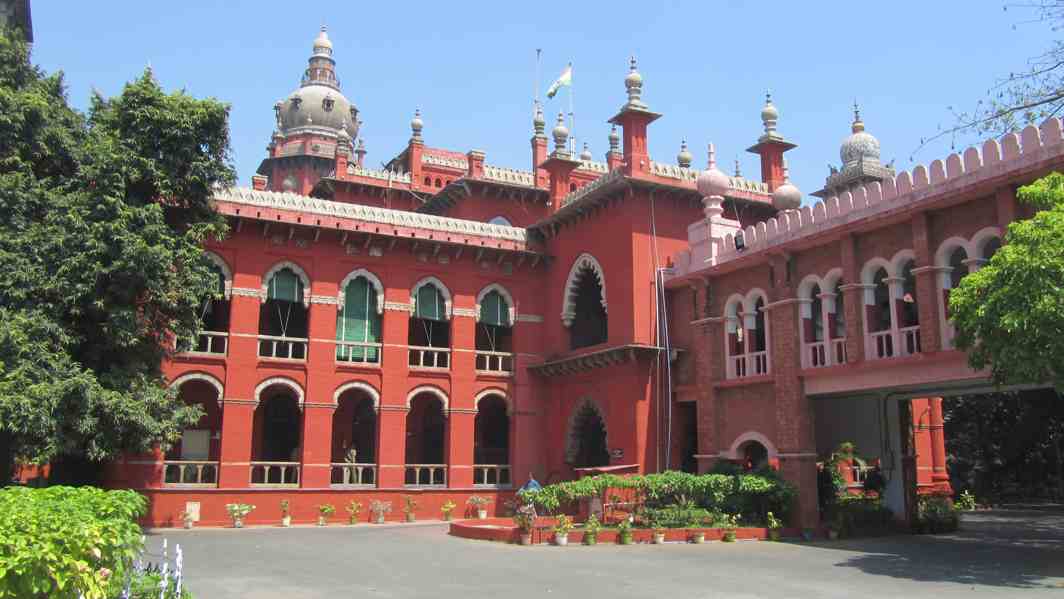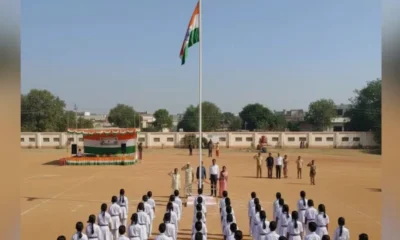Verdict came on a petition filed by an individual who failed a teacher recruitment exam because he didn’t know what language the national song was originally penned in.
The failure of K Veeramani, who failed his Bachelor of Teaching (BT) Assistant selection exam conducted by the Tamil Nadu Teachers Recruitment Board (TRB) because he apparently didn’t know what language Vande Mataram was originally written in, has got the Madras High Court to rule that private schools and government offices in the state must make singing of the national song mandatory!
Veeramani had moved the Madras High Court claiming that the TRB answer key for the examination mentioned that the national song was originally written in Sanskrit although he had read in several books that Vande Mataram had been penned in Bengali. The questionnaire for the selection exam had asked the language that the song had originally been written in and Veeramani had answered ‘Bengali’ only to later realize that he had lost 1 mark for his reply and failed to secure his selection because of it. His contention was that he secured 89 marks in the exam, a single point shy of the selection target – a mark he should have been awarded because in his opinion he had answered the question correctly.
And so, the Madras High Court’s Justice MV Muralidharan, who was presiding over Veeramani’s case, decided to ascertain whether the answer to the petitioner’s piquant problem had been lost in translation.
Justice Muralidharan’s verdict in the matter that came on Tuesday could, however, lead to some controversy since singing of the national song – made mandatory in schools and educational institutions by some in BJP-ruled states across India – has in the past met with strident opposition from some Islamic organizations who claim that it goes against the tenets of Islam.
In his judgement, Justice Muralidharan said that singing of Vande Mataram in schools, government offices, private entities and industries in Tamil Nadu should be compulsory. The court ruled that private and government schools across the state should ensure that their students sing Vande Mataram “at least twice in a week, preferably on Monday and Friday” and that “the song can also be played in other government and private establishments at least once in a month”.
Interestingly, the judge noted that “If people feel it is difficult to sing the song in Bengali or in Sanskrit, steps can be taken to translate the song in Tamil.”
Perhaps alive to the potential consequences of his order given the controversies that have erupted over it in recent years, Justice Muralidharan also ruled: “In the event, any person/organisation has difficulty in singing or playing the song, they shall not be compelled or forced to sing it, provided there are valid reasons for not doing so.”
The judge hoped that this order “shall be taken in the right spirit and also implemented in letter and spirit by the citizenry of this great nation”.
Curiously though the verdict came after much deliberation by the court – which happens to have the second highest pendency of cases among all high courts of the country with 3,02,846 cases pending as of January 2017 and only 38 judges out of its sanctioned strength of 75.
Since Veeramani had contended in his prayer that his answer of Vande Mataram being originally written in Bengali was correct and that the TRB was wrong in saying that the national song was penned in Sanskrit, Justice Muralidharan asked the TRB to clear its stand.
The TRB in turn pleaded that the song was originally written in Sanskrit but was translated later to Bengali.
The court then asked the Advocate General of Tamil Nadu, R Muthukumaraswamy, to find out the right answer. On July 13, Muthukumaraswamy informed the court that while the original language of ‘Vande Mataram‘ was Sanskrit, it was first written in the Bangla script – thus making contentions put forth by both, Veeramani and the TRB, acceptable (depending on how the question is interpreted).
Justice Muralidharan finally ruled on Tuesday that Veeramani’s must be included as a BT Assistant but also decided to make singing of the national song mandatory.


 Latest world news16 hours ago
Latest world news16 hours ago
 Latest world news17 hours ago
Latest world news17 hours ago
 Latest world news16 hours ago
Latest world news16 hours ago
 India News16 hours ago
India News16 hours ago
 India News7 hours ago
India News7 hours ago
 Latest world news7 hours ago
Latest world news7 hours ago








